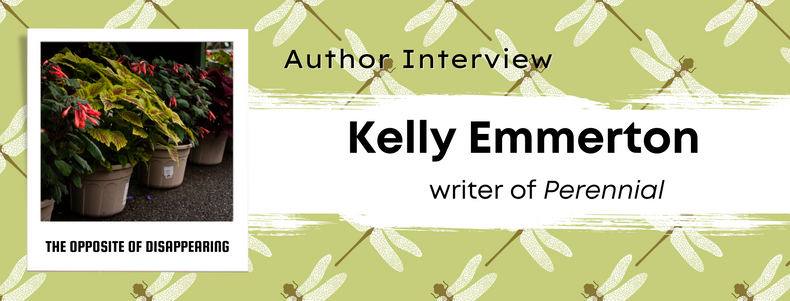Writer of Perrenial
1. Other than the theme for the anthology, what was your inspiration for your short story?
I’m very interested in the idea of examining life’s big concerns – love, grief, change, joy – by looking at it’s smallest moments.
For this story, I guess the spark of inspiration was the many, many pot plants I’ve killed over the years. Some were through neglect, others were from an overabundance of care (desert plants do not like to be overwatered). I’m sure I’m not alone in that.
So it was interesting to take something that usually has pretty minor consequences and is even joked about and ramp up the stakes. To link the experience of something as mundane as keeping a pot plant alive with something as important as keeping the memory of a friend alive was an interesting way to look at a topic as heavy as survivor’s guilt.
2. Did you learn anything from writing your story? Is there something you hope people will learn when they read it?
I learnt that a story centred around something, or someone, who is not present can be tricky!
I think the story is really about being kind and gentle with each other. We all react to life in different ways, sometimes in ways that don’t make a lot of sense on the surface.
3. How did your character/s come to you? Were they difficult, were they easy?
The important thing about the two main characters in my story was that they play off each other well. The premise of the story is that they ‘adopt’ a pot plant as a stand-in for a lost friend. Although they approach that a bit differently, they had to be two friends that would believably agree to that rather odd solution.
The story relies quite a bit on implied intimacy and unspoken agreements, so they had to be characters that allowed for that. Those are the kinds of characters I often write – I love to experiment with different ways to establish the closeness of characters in different, subtle ways.
They’re also quite universal characters. There’s nothing wildly unique about them, which is purposeful. I wanted them to be characters a reader could easily replace with their own friends and think about how the people they love might react in that same situation.
4. What kind of writing style or preferences do you have? Are they similar to your short story?
I tend towards a simple, straightforward style in my writing. I like to give my reader as much credit as I can and trust that they can make connections and tease out meaning for themselves. It’s interesting to see what people notice in a story when not every detail is spelt out, and what meaning they bring to it on their own.
I actually often write more science fiction, but I do enjoy turning my hand to more realistic styles like this story sometimes.
5. Do you have a favourite genre that you love to read? Or perhaps a favourite writing style?
I read and write across just about every genre! I am a big fan of science-fiction, and collect vintage sci-fi magazines.
6. Without giving too much away, could you tell us a little about your short story?
Two housemates deal with the loss of a friend. They don’t talk about it. They don’t adjust their habits. They adopt a house plant instead.
It’s a story about loss and love. It’s about how sometimes when something monumental changes, you see it most in the small things.

